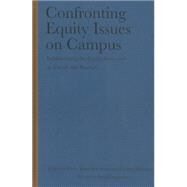- ISBN: 9781579227074 | 1579227074
- Cover: Hardcover
- Copyright: 11/30/2011
Proponents of evidence-based decision-making seriously underestimate the complexity of transforming data into actionable knowledge. The Equity Scorecard, which has a proven track record as a powerful data tool for institutional change, and is the subject of this book, takes as its point of departure that institutional practitioners are in the best position to use data to close the racial gap in the main indicators of successful completion. Many practitioners lack the knowledge, language and experience to question the effectiveness of their practices and how they might contribute to the production of racial inequity. In distinction to the more familiar and prevailing models for analyzing student success, the Equity Scorecard process frames student success in college as an institutional responsibility that requires race-conscious expertise, and that engages individual practitioners in a structured way as agents of change. Central to the Equity Scorecard process is creating internal teams to examine and discuss institutional data about student outcomes, disaggregated by race and ethnicity. The premise of the project is that institutional data acts as a powerful trigger for group learning about inequities in educational outcomes. By examining existing institutional data in novel ways and asking new questions of routine data, this joint-productive activity produces learning that can bring about change in individual and institutional practices to produce equity in educational outcomes. The Scorecard can be used at a small-scale to analyze individual courses or programs, as well as broader institutional issues. This book presents the underlying concept of funds of knowledge for race-conscious expertise that informs this process, describes its underlying theories; defines the attributes needed to achieve equity-minded practice; demonstrates, through examples of implementation, what different institutions have learned, and what they have achieved; and provides a blueprint for action for higher education as a whole.







